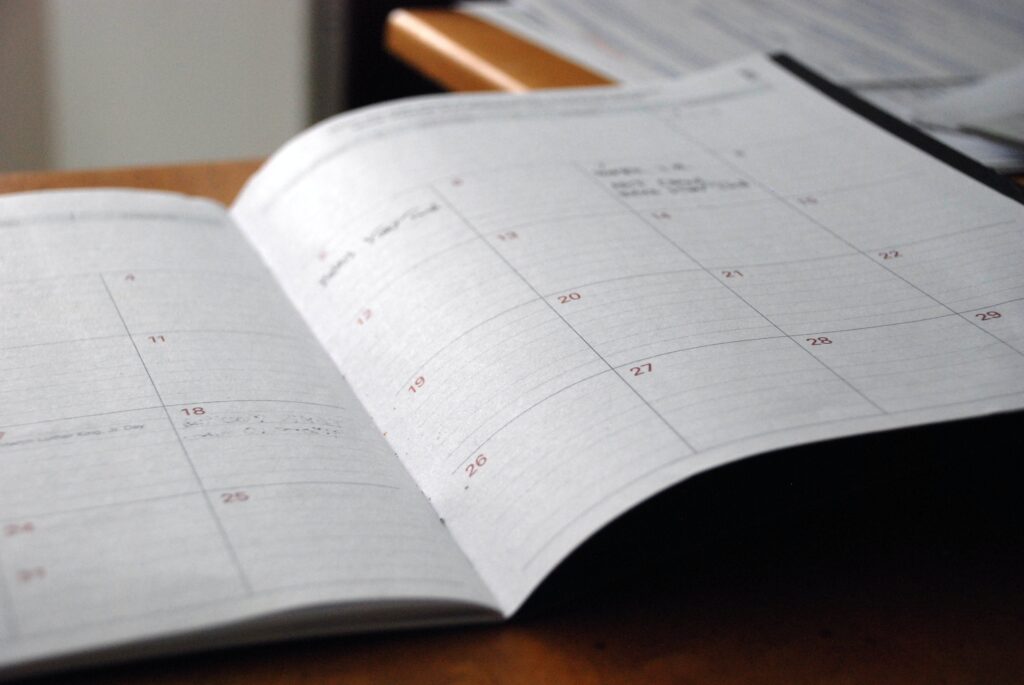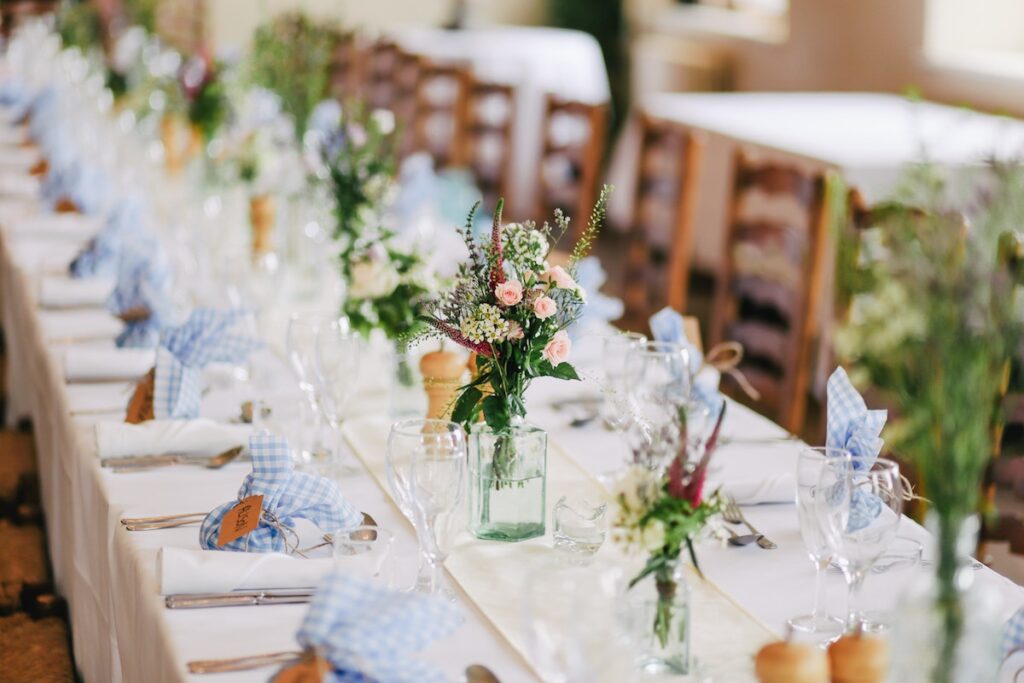How to Find a Venue for an Event: A Comprehensive Guide
Knowing how to find a venue for an event that aligns with your personal tastes, needs, and budget is the most difficult part of the planning process. There are venue requirements for an event to take care of, budget considerations as well as accessibility precautions. Choosing the venue can either break or make your event, which is why understanding all the aspects of an informed decision is vital to the success of your event.
The right space can set the tone for your event, influence the attendee experience, and impact your budget. In this complete guide, we’ll walk you through how to find a venue for an event that’s just right for you.
When to Start Looking for a Venue?
Before we focus on how to find a venue for an event, let’s take a step back and address a more pressing issue: when to start looking.
Event planning is a big commitment. There is no such thing as last-minute event hosting. Event planning takes time, so the sooner you become aware of this necessity, the more time you will have to prepare.
But how soon should you start?
To put it bluntly, as soon as you can. Ideally, no less than eight months before the event takes place. The exception is weddings, which it is advisable to start planning at least one year in advance. Securing your venue ahead of time will give you enough time to focus on other critical parts of your event, like ticket sales and event promotion.

How to Find Venues for Events?
With so many things to consider, finding the right venue can seem daunting. In this section, we’ll guide you through the key aspects to start your venue search, including calculating your budget, finding the best location, considering capacity and layout, checking the services and amenities, and visiting the site. By following these steps, you’ll be well-suited to find a venue that aligns with your event’s needs and provides a memorable experience for your attendees.
-
Consider Your Budget
We all would like to use the Louvre for that fancy event gala. Sadly, it is your budget that will dictate the limits of the venues you can choose from. Before you begin to look into options, it’s essential to have a clear understanding of your budget.
If you are unsure of how to stipulate a budget for your event, here’s a quick step-by-step that you can use:
- Set your budget limit: Determine the maximum amount of money you are willing to spend on the event. This should include rental fees, catering costs, AV equipment, and any additional expenses.
- Break down your expenses: Use Google Sheets or a piece of paper to itemize your total budget into categories. Then, allocate a specific amount of money for each item in the list, based on your event’s needs. For example: Catering $3,000
- Do some research on your ideal venues: The only way to know if you can afford your dream venue is to do some research. Find out the average cost of venues in your desired location. This will give you a fair idea of what to expect and how significant a portion of your budget you should set aside for rent.
- Be aware of hidden costs: Set aside some money for potential hidden fees, like taxes or overtime fees. Prepare in advance by inquiring about these costs before booking the venue.
-
Choose the Perfect Location
Now that you have a budget for your event, it’s time to look into venues. But do you know which is the right one? Start by answering this question: Is your event local?
If the answer is yes, you will be better off choosing a venue within a reasonable distance from most attendees’ homes or workplaces. Contrarily, if attendees must travel, it might be best to choose a venue close to the airport or the hotels they will be staying in.
Additional considerations:
- Traffic times (especially in big cities).
- Transportation options (crucial for out-of-town events)
- Parking options (a great perk for local events)
-
Consider Capacity and Layout
Depending on the type of event that you will be hosting, you should have an approximate idea of how many people will be attending. Having a rough estimate is crucial to select a venue that can host all of your attendees comfortably.
Something that tends to get overlooked is the layout of the venue. Knowing how many people the venue can accommodate is important, but understanding the traffic flow is as essential as the latter. Choosing a venue that goes along with your event activities will ensure the overall satisfaction of your attendees.
Additional considerations for all types of venues:
- Make sure that the venue abides by fire and safety codes.
- Revise all the event safety and security steps for a seamless experience.
-
Consider the Services and Amenities
Understanding your event needs and finding a venue that aligns with them may result in money saving and a better hosting experience overall. Therefore, inquiring about the services and amenities offered by the venue is an important factor that you should weigh in before making your final decision.
Venue requirements for an event:
- Does the venue have a kitchen and provide catering?
- Does it have tables, chairs, and linens available for use?
- Does it have a setup/clean-up crew and AV capabilities?
How to Make Your Event Stand Out?
If you want to make your event stand out, focus on attendee experience. After all, they are the stars of your event. Every choice you make must be with your attendees’ experience in mind. If you manage to put yourself in their shoes and make every decision about them, your event will most likely be an unforgettable experience.
Here Are Some Suggestions to Make Your Event Stand Out
- Incorporate interactive elements. For example, live polling or Q&A sessions.
- Offer engaging activities. For example, workshops or networking sessions.
- Provide valuable content and insights that attendees can’t find elsewhere.
- Consider the design and decor of your event and create a visually appealing environment that aligns with your brand and event theme.
Final Considerations Before Booking a Venue for Your Event
Now that you know how to find a venue for an event that works for you and your needs, there are a few extra considerations to take into account. Ensuring accessibility, visiting the different types of venues in person, and understanding the contract terms, are essential steps to take. These considerations will help you make an informed decision and ensure your event runs smoothly and successfully.

-
Visit The Venue
We live in a world of online commodities, and for most things in life, it comes very much in handy. But for in-person events, make sure you visit the venue you plan on booking at least once. Meet the staff, walk through the site, and get a feel for the layout and ambiance. Ask for the services and amenities, and try to imagine where every part of your event will take place, from the reception to the crazy dance choreographies. Visualize your event happening in the space and see if it aligns with your expectations.
-
Contract Flexibility and Force Majeure
Before booking the venue, review the venue’s contract terms and negotiate for flexibility. Check if the venue includes a force majeure clause and if it allows to make changes to the event. Opting for a flexible venue will give you the peace of mind that should something unexpected happen, you can make changes without penalties.
Benefits of a flexible venue:
- Availability to adapt to changing circumstances. For example, guest count, event date, and services provided.
- Risk mitigation: Unforeseen circumstances (like COVID-19) may impact your event. With a flexible contract, you will have the freedom to reschedule without impacting your finances.
- Protection from Liability: A force majeure clause protects you from liability if you cannot fulfill your contract obligations due to unforeseen events. You won’t be held responsible for breach of contract or incur penalties.
- Financial Protection: If your event is impacted by unforeseen events, you may recover some money—for example deposits, rental fees, or other expenses.
Time to Find Your Dream Venue
Finding the perfect venue for your event requires careful planning and consideration. By following the steps covered in this guide, you should now know how to find a venue for an event that aligns with your budget, meets your needs, and provides a positive and memorable experience for your attendees.
Remember that the secret to a successful event is not champaining your event with glitter, but rather focusing on the attendee experience. If you manage to step on their toes and create an event that resonates with them, it will surely leave a lasting impression on everybody for years to come.
Now that you have reached the end of this guide, we have a gift for you: a free Event Venue Checklist that you can use to make sure you tick all the boxes for a perfect venue booking. Download the checklist and start venue hunting like a pro event planner today!